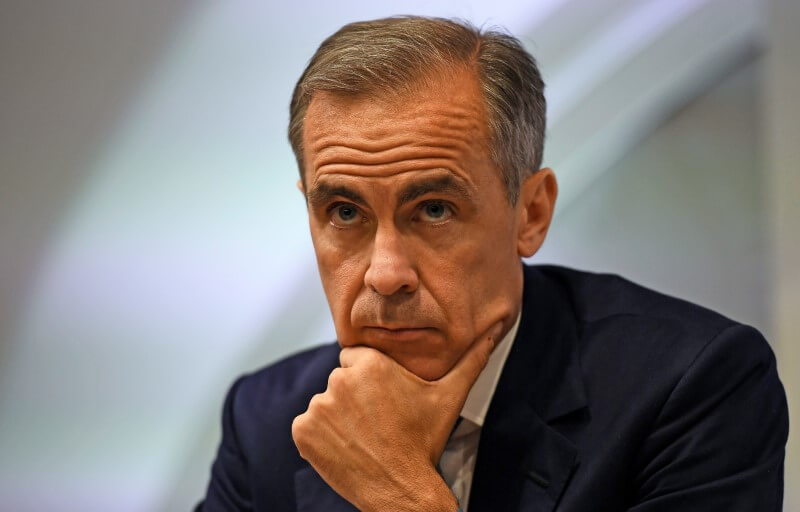By William Schomberg
LONDON (Reuters) – As Britain struggles with political chaos following its vote to leave the European Union, central bank governor Mark Carney has stepped into the breach to manage the economic fallout. His response to the outcome of the June 23 referendum, starting with a televised address barely an hour after the final result was declared, contrasts with that of finance minister George Osborne, who did not appear publicly for three days. With sterling and stock markets plunging as the “Leave” campaign headed for victory, Carney had arrived at the Bank at around 4 a.m. to prepare to tell the country that the economy was well prepared for the turmoil ahead. It was the first of three interventions aimed at calming investors and reassuring companies and households that the economy was in safe hands, even after Prime Minister David Cameron announced his resignation in the wake of his referendum defeat, leaving the government in limbo. “The governor of the Bank of England, once again, is offering clear leadership and boosting business confidence at a time of political and economic uncertainty,” the head of the British Chambers of Commerce, Adam Marshall, said. Analysts at Brown Brothers Harriman, a financial services firm, said the Bank of England seemed to be among the only centers of power in the UK with a game plan, describing Carney in an email to clients as the “adult in the room.” A week after the vote, with the ruling Conservatives and the opposition Labour Party both consumed by infighting, Carney gave an unusually explicit signal that the Bank was poised to pump more stimulus into the economy in the coming months. He echoed the refrain of European Central Bank President Mario Draghi, who said in 2012 that the ECB would do “whatever it takes” to save the euro. Carney said the BoE would “not hesitate to take any additional measures required”. This week, Carney and his fellow policymakers began to act, saying on Tuesday that they were scaling back capital rules for banks in the hope of spurring more lending and changing rules for insurers to lower the risk of a corporate bonds sell-off. Action on monetary policy, including an interest rate cut possibly as soon as next week and a reliance of the BoE’s massive bond-buying program, is expected next.
POLITICAL FIRE
It has not always been plain sailing for Carney, a former investment banker, since he arrived at the BoE after steering the Bank of Canada through the global financial crisis of 2007-9.
Billed as the “outstanding central banker of his generation” by Osborne, who appointed him, Carney was criticized for giving premature steers about when the Bank might start to raise interest rates from their record lows as Britain recovered from the financial crisis. But his quick response to the Brexit shock has drawn favorable comparisons with Britain’s political leaders.
After his initial silence after the EU referendum, Osborne sought to reassure investors by holding out the prospect of corporation tax cuts and a softer approach to fixing Britain’s public finances. However, Osborne’s future looks uncertain with no clarity on who might be running the government in future.
Carney’s response has also drawn comparisons with the way the BoE, under former governor Mervyn King, responded to the onset of the global financial crisis: the Bank was criticized for not realizing quickly enough the scale of the problems in the banking sector. Not everyone thinks Carney’s unusually pro-active approach to the Brexit challenge is a good idea.
Andrew Sentance, a former BoE interest rate-setter, said it was very unusual for a BoE governor to signal so clearly his view on monetary policy before he and his eight colleagues on the Monetary Policy Committee have met. “He appears to be trying to lead the Committee in a certain directionbefore there is clearevidenceabout how the economy is responding to this shock,” Sentance said. “The MPC is always evidence-based in its decisions and at present we have little evidence on the economic impact of the Brexit decision.” Carney and his fellow policymakers have the chance to deliver the next stage of their plan to guide the British economy through the Brexit crisis on July 14 when the Bank is due to announce its monthly monetary policy decision. Economists polled by Reuters mostly predicted that the BoE would wait to cut interest rates until its following meeting on Aug. 4, by when it will have a clearer idea of how hard the Brexit impact on the economy is likely to be. As for his own future, Carney has sought to squash speculation that he might struggle to run the Bank if Britain’s next prime minister turns out to be one of the “Leave” campaigners angered by the Canadian’s warnings in the run-up to the referendum that a Brexit vote would hit the economy. Of the three remaining contenders to replace Cameron, two – justice minister Michael Gove and Andrea Leadsom, a junior energy minister – were senior figures in the “Leave” campaign who criticized Carney before the vote. “It would be irresponsible of me, or any of my other colleagues, to walk away from (our) obligations,” Carney said last week when asked by reporters about the prospect of political hostility under Britain’s next government. (Editing by Philippa Fletcher)
Bank of England’s Carney steps up as Brexit crisis engulfs UK

By William Schomberg
















